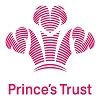BUSINESS PLAN: This guide explains how to write a professional business plan and outlines the main goals and benefits of business planning.
Professional business planning helps you attract funding. The document is a formal statement of your commercial goals and expectations.
It should contain relevant background information about the organisation.
It is an opportunity to explain your reasons for future plans and why they are attainable.
Writing business plans is about looking ahead and forward planning. This guide shows you how to download free business plan templates. There is further information and expert help on how to write a business plan.
Is Your Business Idea Viable?
Part of business planning relates to the viability of your intentions. You might call it a showcase of your vision and company goals. That is why a start-up business plan can help to expose any flaws in your thinking before the launch.
A professional business plan tells a convincing story. Solid financial information will underpin its content. Figures which do not stack up will lack credibility and support. You must research financial forecasts to provide sound benchmarks. This will ultimately be the judge of your future plans for successful business strategies.
So one of the main benefits of having a business plan is enabling you to make adjustments and changes. Well, you can alter your plan on paper at least.
Contents of a Business Plan
 When you write your business plan the document must describe your venture. It has to communicate your vision and cover some basic objectives and strategies
When you write your business plan the document must describe your venture. It has to communicate your vision and cover some basic objectives and strategies
Sales and marketing forecasts must be part of a strong business and finance foundation.
Thus, your business plan helps you to:
- Clarify a credible business idea.
- Identify and adjust potential problems.
- Set out your specific goals and measure your achieved progress.
Benefits of Business Planning
Business planning is necessary if you want to secure a loan or investment from a banking institution. Part of securing finance is convincing customers and your suppliers to support you. The same credibility also goes towards your relationship with potential employees.
A Tool for Business Management
You have acquired a business management tool when you write a business plan. It shows what type of products or services you market or specialise in. Apart from clarifying what you ‘sell’, it also overviews any competition in your industry.
As a rule for business plans, you will add a detailed executive summary. It is a section that itemises the key points of your vision. Even though it is best to write it last, the executive summary should appear at the front your document.
Recommended Length of a Business Plan
Keep these 5 key points in mind when you develop a business plan.
- A professional business plan should be quite short (between 10 and 15 pages).
- The typewritten document must look competent and polished.
- Proofread it often – and check for spelling and grammatical correctness.
- The written language should be simple and without jargon.
- Write a business plan as concise as possible but with enough explanatory content.
Write a Business Plan Using Facts
All information in a business plan should be factual. It should be honest and as realistic as possible. Try to avoid making too many assumptions. You should backup most of your assumptions using facts when you can.
Lenders or investors will appreciate pragmatic forecasting which stems from solid evidence. They will shy away from over ambitious guesswork.
A common mistake is being excessively optimistic with sales forecasts and cash flow predictions. Write a business plan that shows you considered a few worst-case scenarios. It is not wrong to document your weaknesses – all businesses have them. But, showing how you will overcome them is a vocational strength.
Business Plan Tips
Have your completed business plan proof read by expert advisers. Adjust and amend any weak or incorrect areas that they identify.
Update Your Business Plan
Things often change quickly and considerably in business. Updating your plans regularly will help maximize their value. It also focuses your attention to your objectives.
It is the financial data which is most likely to change. You may need to adjust forecasts to your business on an accurate footing. It also gives you an opportunity to judge how well – or not – your business is performing.
As a rule of thumb you should update your business plan every few months. Most successful entrepreneurs recommend a major review of a business plan every six months.
Free Business Plan Templates
 Getting your business plan right the first time is crucial. The Prince’s Trust provides business plan templates for those thinking about setting up a company.
Getting your business plan right the first time is crucial. The Prince’s Trust provides business plan templates for those thinking about setting up a company.
They highlight the top tips and tricks on how to write the perfect business plan. You can also download a free business plan template and Free Sample Business Plans on their website.

